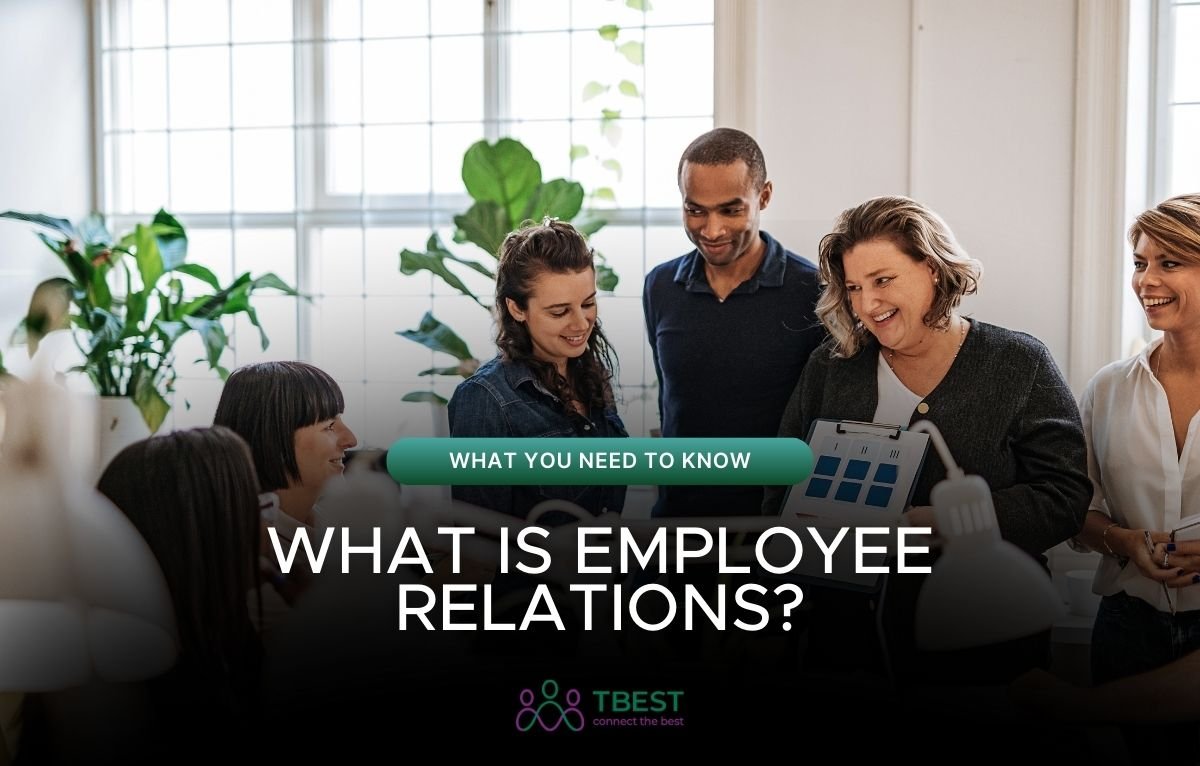
At its core, employee relations is about building strong connections between employers and employees—fostering open communication, creating a positive workplace culture, and addressing issues that impact job satisfaction.
If you’re leading a team or part of one, understanding employee relations is key to a thriving and productive work environment. Let’s simplify what it means and why it matters.
Employee Relations
Employee relations refers to the strategies, practices, and processes that foster a healthy working relationship between a company and its employees.
It’s about creating a workplace where employees feel valued, respected, and motivated to perform their best.
Unlike human resources, which covers a broad range of responsibilities like recruiting and payroll, employee relations focuses specifically on maintaining good communication and addressing issues that affect employee satisfaction and performance.
Why Is Employee Relations Important?
Strong employee relations are the foundation of a successful business. When employees feel heard, supported, and respected, they’re more likely to be engaged and productive
Here’s why it matters:
- Boosts Job Satisfaction
Employees who feel appreciated and respected are more likely to stay committed to their work. This leads to higher job satisfaction and lower turnover rates. - Improves Productivity
A positive relationship between employees and management encourages open communication, which can help identify and resolve problems before they escalate. This results in a more efficient and productive workplace. - Reduces Conflict
Effective employee relations involve addressing disputes and concerns quickly and fairly. This helps maintain harmony in the workplace. - Strengthens Company Culture
When employees feel like they’re part of a supportive and respectful environment, it creates a stronger, more cohesive company culture.
Key Components of Employee Relations
1. Communication
Clear and open communication is at the heart of employee relations. Employers must create channels where employees can voice their concerns, share feedback, and feel heard. This could include one-on-one meetings, surveys, or team discussions.
2. Conflict Resolution
Disputes and misunderstandings are inevitable in any workplace. Employee relations involves resolving conflicts in a way that is fair and respectful to all parties involved.
3. Employee Recognition
Acknowledging and rewarding employees for their hard work is a big part of maintaining good relations. Recognition programs, bonuses, or even a simple thank-you can go a long way.
4. Workplace Policies
Having clear and fair workplace policies helps set expectations and ensures that everyone is treated equally. These policies might cover topics like performance reviews, attendance, or disciplinary actions.
5. Employee Feedback
Actively seeking and addressing employee feedback shows that a company values its workers. This can help identify issues early and create solutions that benefit everyone.
Role of Managers in Employee Relations
Managers play a critical role in fostering strong employee relations.
They’re often the first point of contact for employees and are responsible for maintaining a positive work environment.
Here are a few ways managers can contribute:
- Encouraging Open Communication: Managers should create an atmosphere where employees feel comfortable sharing concerns or ideas.
- Setting Clear Expectations: Employees perform better when they know what’s expected of them. Clear communication about goals, responsibilities, and performance standards is key.
- Being Approachable: A manager who is open and approachable makes it easier for employees to voice concerns before they become bigger problems.
Challenges in Employee Relations
Maintaining strong employee relations isn’t always easy. Here are some common challenges businesses face:
- Communication Gaps: Miscommunication can lead to misunderstandings and conflicts.
- Unresolved Conflicts: If disputes aren’t handled promptly, they can create a toxic work environment.
- Lack of Recognition: Employees who feel undervalued may disengage or leave the company.
- Inconsistent Policies: If workplace policies aren’t applied consistently, it can lead to feelings of unfairness among employees.
Addressing these challenges requires ongoing effort, clear policies, and a commitment to creating a positive work environment.
Building Better Workplaces Together
When you ask, “What is employee relations?”, the answer lies in creating a workplace where employees feel respected, valued, and motivated to succeed.
Strong employee relations benefit both workers and employers by fostering trust, boosting morale, and improving productivity.
At TBest Services, we understand how important it is to get employee relations right.
If you need support with creating fair workplace policies, resolving conflicts, or improving communication, we’re here to help.
Visit TBest Services to learn how we can partner with you to build stronger, happier teams. Let’s work together to create a workplace where everyone thrives.

